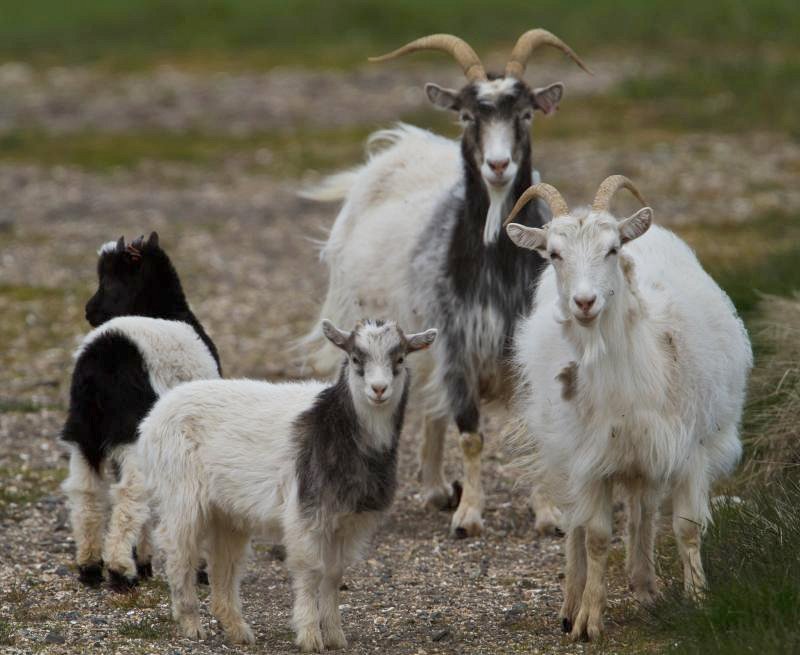For over 1,100 years, a unique “heritage breed” of Icelandic goats has sustained the country’s population, serving as a staple of cuisine for centuries. Yet as dietary needs and preferences shifted, the goat population slowly dwindled, reaching the brink of extinction at under 100 animals by the late 20th century.
Although one might imagine the solution to be found in a government protection program or a widespread endangered-species campaign, one Icelander saw a different path—focusing not just on the restoration of the breed’s cultural legacy, but on its economic value.

“When saving a breed, you have to use it,” explains Johanna Thorvaldsdóttir, owner of Háafell, the country’s first commercial goat farm. “If they aren’t giving you income, no one will work with them.”
After leaving her job as a nurse in 1999 to start the farm, Thorvaldsdóttir began with four goats and has since grown the herd to 250. Meanwhile, through her advocacy efforts, she’s helped the country’s wider goat population expand to 1,200.
In a short film from Great Big Story, we learn more of Thorvaldsdóttir’s story:
The road hasn’t been easy, especially when the farm was threatened with foreclosure after Iceland’s financial crisis in 2014. Thanks to a crowdfunding campaign by a food writer and an appearance by the goats in the popular television series, Game of Thrones, Háafell would survive, as would its broader mission.
As Nicholas Gill explains in The Guardian, the Icelandic goat is now returning as a feature of the country’s cuisine:
For the first time since Háafell’s owner Jóhanna Thorvaldsdóttir took in four Icelandic goats in 1999, she is making a profit from them. Goat cheese, ice-cream, meat and the breed’s cashmere-like hair are bringing in money to help care for the animals, as are increasing numbers of tourists stopping for a tour to see a unique heritage breed that very nearly disappeared.
Gísli Matthías Auðunsson chef at Skál! restaurant in Reykjavík said: “A year ago, she [Thorvaldsdóttir] was having trouble selling some parts of her goat and we ended up buying 260kg of meat. I hadn’t even tried Icelandic goat before. It surprised me how delicate it was and how easy it is making delicious food with it.” Matthías now serves goat often, either braising the meat or serving the cheese with birch sugar, fennel crackers and rhubarb.
It’s a striking example of how humans take risks to creatively cooperate with nature, often for the simplest of reasons. “Why do I like to save goats?” Thorvaldsdóttir asks. “That’s a question I have often been asking myself, because I can’t answer it.”
Thorvaldsdóttir’s stewardship highlights the beauty of cooperation with nature and neighbors and the abundance that’s available at the intersection of environmental and economic stewardship. We were created to cooperate with nature and share the fruits of that cooperation with those around us through trade and exchange.
As explained in Episode 2 of The Good Society, Acton’s new film curriculum, at a fundamental level, all of our work is simply the process of applying our God-given intellect and creativity to transform matter into usable things.
Thorvaldsdóttir’s stewardship offers a clarifying example for the rest of us, whatever our economic activity and environmental domain.
When we look back to the garden, we see God partnering with Adam and Eve as co-creators in nature, calling and empowering them to complete it, steward it, cooperate with it, and improve it using their reason, creativity, and spiritual discernment. Just as Thorvaldsdóttir uses her gifts to steward these goats, and in turn, preserve and enhance culture, so can we use our creativity and stewardship to transform and redeem creation, each and every day.
As intangible and unwieldy as the modern economy may sometimes feel, it presents us with an abundance of new opportunities for planting and watering—for cooperating with nature and neighbors to transform creation for God’s glory.